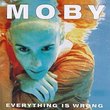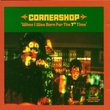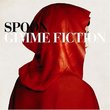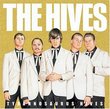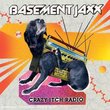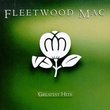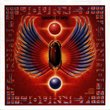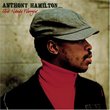| All Artists: Can Title: Can Members Wishing: 3 Total Copies: 0 Label: Mute U.S. Original Release Date: 1/1/1979 Re-Release Date: 12/2/1993 Album Type: Original recording reissued Genres: Dance & Electronic, Alternative Rock, Special Interest, New Age, Pop, Rock Styles: Electronica, Experimental Music, Progressive, Progressive Rock Number of Discs: 1 SwapaCD Credits: 1 UPC: 724596107324 |
Search - Can :: Can
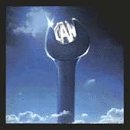 | Can Can Genres: Dance & Electronic, Alternative Rock, Special Interest, New Age, Pop, Rock
|
Larger Image |
CD DetailsSimilarly Requested CDs
|
CD ReviewsAn Excellent LP!!! tvan97@prodigy.net | florida | 06/05/1999 (5 out of 5 stars) "I agree with Mike Paulsen, this is absolutely a great cd. It seems that old Can fans like the more primitive sounding improvised stuff that was recorded on 2 track (not to say that much of that stuff isn't fantastic) but this cd has gotten a bad rap that it doesn't deserve. "All gates open" is a great song, built on a simple riff, with some great harmonica & keyboard, although not karoli's strongest vocal. I like "Safe" which has an awesome rock solid power drum beat, great lyric (this is a greeting message for all of those who like to take everything quite easy and aren't sure which is the right way,...), and spacey relaxed guitar & keyboard which fade in and out, repeating musical themes. A classic(one of czukays favorites from the LP), cuts 3 & 4 are also excellent. Sunday afternoon jam is just that, & I disagree with Paulsen's comparison with Santana - it is a great moving piece with all the odd Can atmospheric effects in place & swirling around the driving bass & drums. Sodom, although not the greatest title, is probably the most creative & unusual piece on the album - it casts a tense, eerie feel. I'm less enamoured with the last 3 pieces. If you like instrumental rock or something a bit different, you can't go wrong here! A great beginners doorway to understanding this often misunderstood group." CAN CAN'T CAN CAN WITHOUT HOLGER Jon Noel Shelton | Lexington,KY | 03/26/2001 (5 out of 5 stars) "This was the last Can album of the seventies and the last to have any Holger Czukay involvement (he cowrote some songs and did some mixing). It is definately an improvement over OUT OF REACH(1978) which had no Czukay involvement and, while a good album, failed to deliver the timeless quality that Can albums are remembered for. This album, while something of an uneven mix of songs, has it's share of timeless moments. The Michael Karoli guitar part that underlies the chorus of "All Gates Open" has a flavor so tangy sweet you can taste it. The combination of mantra-like vocal and swooshy air sound effect (no doubt a Czukay invention) on "Safe" lift the song to a funky, trance inducing beat. "Sunday Jam" is simply one of the best Can instrumentals ever recorded. "Sodom" sounds as sexy and seductive as it's title suggests. "Aspectacle" - a jazzy attempt at a dance record- would have probably worked better had it been shortened by a minute or two, but is still pretty groovy. Last but not least of all is "Can Can" -a can classic which sounds like it would have made a perfect themesong for THE YOUNG ONES (remember that show?). "Ping Pong" is a piece of inspired lunacy before "Can Can" reprises itself -which really wasn't necessary as another song could have gone here. Yes, Can seem to be stretching things a bit towards the end of the album and for that reason I'm giving it four stars. However, the album's few shortcomings don't outweigh it's many timeless innovations. No Can collection would be complete without it." Not Very Good Scott McFarland | Manassas, VA United States | 05/05/2001 (3 out of 5 stars) "The opener "All Gates Open" is a nice (if surprisingly straightforward) piece of prog-rock. "Safe" has a nice bassline and is a decent jam... But at any rate "Safe" is okay and sounds better than most of the rest of this.The rest of this is pretty much crap. When a band's at the point of taping 30 seconds of a ping-pong game and calling that a track, they're probably low on ideas. Can were low on ideas and most of the music here is devoid of them."
|

 Track Listings (8) - Disc #1
Track Listings (8) - Disc #1